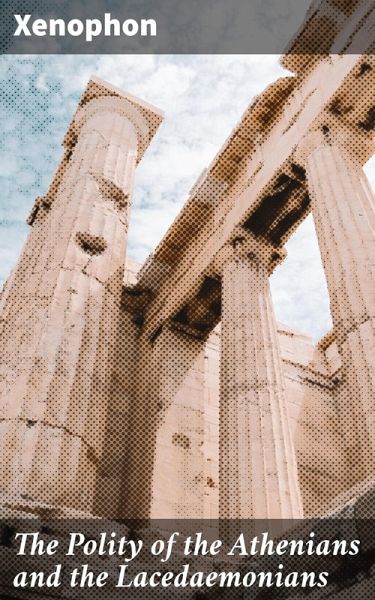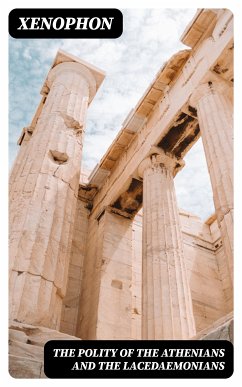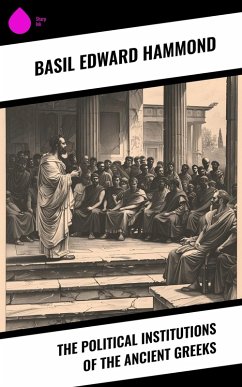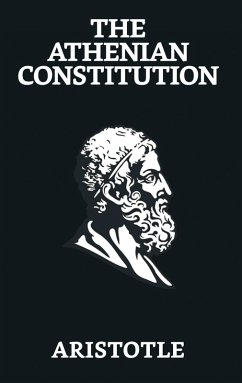
The Polity of the Athenians and the Lacedaemonians (eBook, ePUB)
Enriched edition. An In-depth Comparison of Ancient Athenian and Spartan Political Systems
Kommentar: Whitaker, Duncan / Redaktion: Good Press / Übersetzer: Dakyns, Henry Graham

PAYBACK Punkte
0 °P sammeln!
Xenophon's "The Polity of the Athenians and the Lacedaemonians" presents a rich comparative analysis of the political systems of Athens and Sparta during the classical era. Through a blend of historical narrative and philosophical treatise, Xenophon elucidates the strengths and weaknesses of both city-states' governance, illustrating his arguments with vivid examples from the political machinations of his time. His engaging prose captures the essence of Athenian democracy and Spartan oligarchy, inviting readers to ponder the implications of different political structures on civic life and mora...
Xenophon's "The Polity of the Athenians and the Lacedaemonians" presents a rich comparative analysis of the political systems of Athens and Sparta during the classical era. Through a blend of historical narrative and philosophical treatise, Xenophon elucidates the strengths and weaknesses of both city-states' governance, illustrating his arguments with vivid examples from the political machinations of his time. His engaging prose captures the essence of Athenian democracy and Spartan oligarchy, inviting readers to ponder the implications of different political structures on civic life and moral character. Written in a period marked by political turmoil, the text serves as a crucial artifact for understanding the dynamics of power and governance in ancient Greece. As a student of Socrates and a contemporary of Plato, Xenophon was deeply influenced by the philosophical discourse surrounding ethics and civic responsibility. His experiences as a soldier and a politician informed his perspectives on governance, making his analysis both practical and philosophical. This duality enriches his exploration of Athenian and Spartan institutions and their societal effects, reflecting his desire to find a model of governance that serves the common good. This book is recommended for readers interested in political philosophy, ancient history, and the development of democratic systems. Xenophon's work not only provides insight into Athenian and Spartan governance but also prompts critical reflection on the nature of authority, citizenship, and the responsibilities of the state. Its timeless relevance is a testament to the enduring nature of political inquiry. In this enriched edition, we have carefully created added value for your reading experience: - A succinct Introduction situates the work's timeless appeal and themes. - The Synopsis outlines the central plot, highlighting key developments without spoiling critical twists. - A detailed Historical Context immerses you in the era's events and influences that shaped the writing. - An Author Biography reveals milestones in the author's life, illuminating the personal insights behind the text. - A thorough Analysis dissects symbols, motifs, and character arcs to unearth underlying meanings. - Reflection questions prompt you to engage personally with the work's messages, connecting them to modern life. - Hand-picked Memorable Quotes shine a spotlight on moments of literary brilliance. - Interactive footnotes clarify unusual references, historical allusions, and archaic phrases for an effortless, more informed read.
Dieser Download kann aus rechtlichen Gründen nur mit Rechnungsadresse in A, B, BG, CY, CZ, D, DK, EW, E, FIN, F, GR, H, IRL, I, LT, L, LR, M, NL, PL, P, R, S, SLO, SK ausgeliefert werden.













